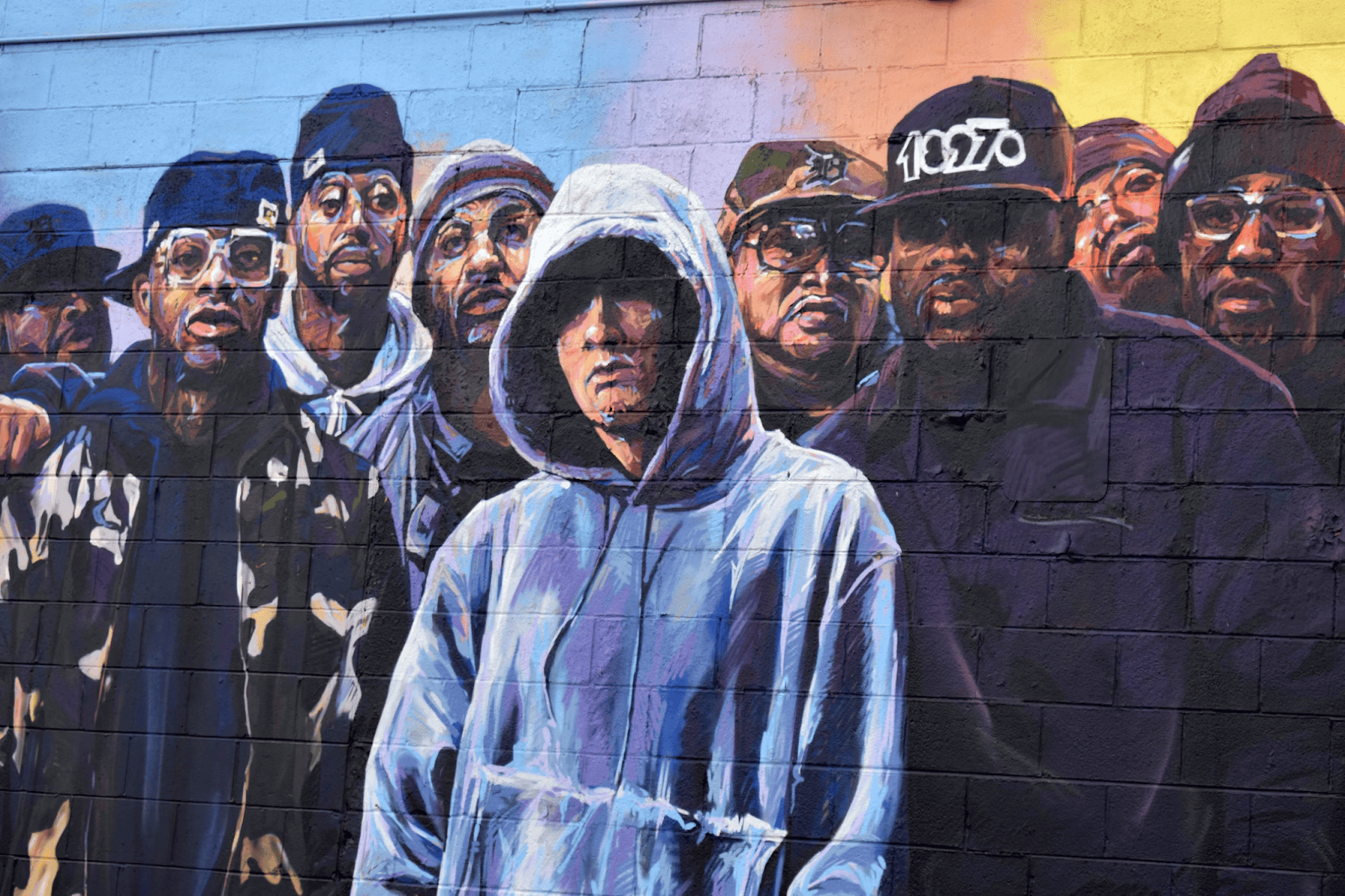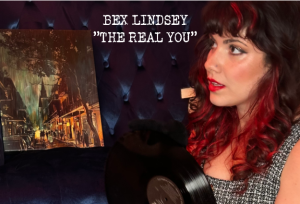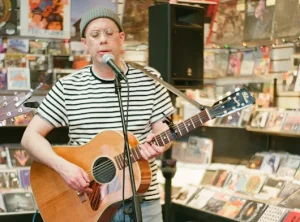This article is brought to you by One Submit – Spotify promotion, TikTok music promotion, blogs, record labels, and more.
Hip-hop has reigned over the Billboard and iTunes stores and every other streaming platform up to this year. If you are here, that may be because you are thinking about getting a mic and starting to rap.
Hip-Hop Music in 2025: The State of the Union
The rap scene has never been as colorful as it is nowadays. Famous rappers like Future and Lil Baby are currently at the top of the charts, while the underground is thriving with rap artists like JID and Denzel Curry. The rhythm has also evolved with melodic rap giants like Rod Wave and Don Toliver and experimental hip-hop greats like Danny Brown and JPEGMAFIA. This proves there is still a place for everyone and every kind of hype-hop in today’s hip-hop world.
Starting From the Bottom (Now We Here)
First, let me be frank: You don’t need much money to become a rapper. Marshall Mathers, better known by his stage name Eminem, grew up in a trailer park in Detroit and Kansas and emerged as one of the best-selling musicians ever.
For example, J. Cole was a bill collector who started mixing his tapes and became one of hip hop’s most prominent artists. These success stories show that if you are good, hardworking, and determined, you can make it big regardless of your financial background.
Your First Steps in the Game
Before you begin planning your Rolling Loud performances and your presence on the Billboard top charts, you should do the following to start your rap career from scratch.
Mastering the Fundamentals
First things first—it’s time to count yourself as a student and learn the basics, and I mean, know it to the core. Knowledge is power.
Your education might begin with the classics: Learn from Run-DMC’s album “Raising Hell,” learn what was so significant about Tupac’s album “All Eyez on Me,” and if you can, get familiar with every word of Nas’s album “Illmatic” and his excellent rap song: “N.Y. State of Mind.”
You also have to know there is a difference between music rap genres like Atlanta trap music or Chicago hip hop. Understanding regional styles is too important. You can’t just start with hip-hop, do you?
It’s essential to understand what makes an artist like that, and that begins with understanding and identifying the specific kind of hip-hop they are creating. This is where you break it down by genres because while hip hop is hip hop, it’s not created equal. Different styles are essential to know, too.
In addition, there is UK grime, where Stormzy, Skepta, and Dave are making a style of music of their own, or the new West Coast generation of Kendrick Lamar, YG, and Roddy Ricch.
Finding Your Lane
This is why I love the contemporary rap – no rainbows and butterflies approach. The social justice section of rap is booming, with successful rappers like J. Cole and Rapsody, while the trap is still expanding with Gunna and Lil Durk. Alternative rap is also coming up through Tyler The Creator and Childish Gambino’s contributions.
Death Grips, Clipping, A Boogie with the Hoodie, and Post Malone are the figures behind melodic rap. They prove that there is more to rap than just a genre and that there is a way for every artist to discover their unique direction and sound.
Your job is to determine which of these you fit into. It might be that super raw, old-school boom bap or some completely new hybrid genre like Bad Bunny, which is in the Latin trap, reggaeton, and hip hop.
Improving Your Flow in Rhyming
This is where most hip-hop artists would be wrong here; they imagine that linking words is only required. But the greats know that it is not that easy. Please find out how DOOM controlled his flow with internal rhyme and elaborate wordplay or how Kendrick Lamar used metaphors throughout his debut album.
If you want to improve your lyric writing skills, start reading poetry because you read that right. Some people are doing it; even Tupac was influenced by Shakespeare, and the playwright is famous for that.
Just like the renowned rapper Eminem carried around a rhyme journal with his notebooks, it is about time you learned and understood literary techniques such as comparison, like, and verbal imagery to write rap lyrics that are easily distinguishable in the current environment.
If you cannot write songs, try starting with covers, but make them in your style.
Remember, your words are the ammunition, and your voice is your mighty weapon.
Building Your Brand
One should not ignore one’s rap identity as it is and should not try to run away from it. Cardi B, an Instagram model who left her job to become a rapper, is an example. Another example is Tyler, The Creator, an artist who initially used shock value but found his art in later works.
The fashion/music industry is a perfect example of the best of both worlds, with Travis Scott representing rap and Logic representing a gaming/rap crossover.
The brand is the identity, which includes the clothes, logo, artwork, social media accounts, music video appearance, and personal history. Having the right swag and style to claim a position in the music business is always essential.
Getting in the Studio
You will need some equipment to create your music. First, select one of the Digital Audio Workstation (DAW) software programs, such as FL Studio, Logic Pro, Pro Tools, or GarageBand.
Initially, purchasing a perfect microphone, such as Blue Yeti or Neumann, is possible. Do not try to save money on a good microphone; you do not want to waste all your hard work just because of a bad microphone.
To enhance the sound, remove the pop filter from the mic, perform essential acoustic treatments, and maybe hang some blankets on the wall.
Learn the basic recording and track mixing techniques; becoming professional will take some time. If you are not technical, try to find a good producer.
If you get it, knowing about music composition, chords, and harmonies is a plus as a rapper. Because you can license beats and rap on them and don’t have to create your beats, the composition is unnecessary, but it could prove helpful in developing your unique sound.
Stay productive and professional, but release as much music as you can. Nobody is born an expert, and learning to control the microphone takes time. Not all of the things you would release will be gold, but if you improve over time, you will reach the point where you’ve found your unique sound.
Networking Like Your Career Depends on It
But once you’ve got your well-produced music, then networking becomes the key. Industry connections are essential, though, as they can open the door to collaborations, features, and production opportunities that could help more people hear an artist’s music.
It is also important to build relations with DJs, producers, and radio personalities so that performance opportunities, such as the music the managers promote, are available.
Meeting music executives, managers, and label representatives and building relationships with them can result in record deals, distribution, and marketing support. Many famous artists have had a big chance through industry contacts.
Hanging out and meeting other artists in the same industry, hip-hop helps you get your music out to new fans and vice versa. It is also a way of getting guidance from industry insiders who can assist the artist in the business side of music.
Stay local, attend the local shows, meet the local producers, and join the local rap culture. Collaborate with other upcoming artists and get them to write your features. Stay active in the music industry, attend industry events, and always be active on social media platforms.
Every contact you make during your career might be the right one to take your career to the next level. Therefore, it is essential to build contacts and networks because this can lead to great opportunities.
Marketing Yourself
In 2024, you have to be heard everywhere. Your music career needs to place your music online everywhere. TikTok has become a powerful influencer, bringing chart hits like Old Town Road and The Box to number one.
Instagram and TikTok effectively show people how the process goes, but YouTube has your music videos and freestyle sessions. It helps engage with your audience and is crucial for playlist recruitment; however, SoundCloud is still famous for songs and freestyles.
Having a social media presence is essential for your rapping career. Spotify and Apple Music are necessary for success, but playlisting is one of the best ways to get your music heard and gain streams. It can become royalty; you will get more royalties with more streams.
Find out more on how much Spotify pays per stream.
Your marketing plan should include the following strategies: content calendar, virality, interaction with fans, email list, reaching out to playlist curators, and collaboration with other musicians.
Perfecting Your Live Show
Although we live in the digital world, it is still essential to perform actual performances to become a rapper; it is crucial in the rap industry.
Learn from the best: Travis Scott’s energy on stage, J. Cole’s stage presence, Megan Thee Stallion’s choreography, and Kendrick Lamar’s performance art.
In terms of stage image, learning how to handle the audience, improving breath control, rehearsing the list of songs to perform, and freestyle rap are essential, but above all, stage confidence training is the most important thing.
To improve your rap skills, attend local open mic events and participate in rap battles until you are confident enough to run your show.
Common Pitfall to avoid
The most important thing is awareness. You have to know when your songs are not good enough or when they are potential hits. If you are a beginner, try to listen to and seek advice from a professional producer or a songwriter, a person you appreciate.
It should also be noted that there are inevitable mistakes one is likely to make in an attempt to get one’s dream rap career.
Instead of being unique and developing their brand of music, many artists follow the path of imitation and try to replicate other artists.
Some don’t grasp the business side of music or have no legal protection for their work. Some have a history of burning bridges in the industry or singing songs before they become coherent. Most new artists make the mistake of not spending money on producing the music, not bothering with fans, or getting involved in industry feuds. It is, therefore, wise to steer clear of these pitfalls by keeping one’s eyes on the music and good professional behavior.
The Road Ahead
It’s a marathon, not a sprint. To get to the finish line, you’ll have to know it will be a long journey, that you need persistence, and that you need to learn from your mistakes and get better along the way.
Here are some tips: Stay true to yourself, and don’t rush – just let good things happen. To release great music, create quality content for social media, interact with your audience, learn how the music business works, not rush, and keep it accurate. It’s also important to note that nothing worth having comes easy.
Final Words
In 2025, hip hop is not only easier to get into than it ever has been, but it’s also easier to get lost in a crowded music market. Your success will depend on several things, including talent, tenacity, persistence, contacts, and marketing strategies. In the current digital paradigm, it is equally essential for rappers to have both offline and online fans.
In the digital world, artists must use social media to interact with fans, other musicians, and people in the industry. Share your work with music blogs, podcasts, and forums online, and get along well with the playlist curators and digital distributors.
Being active in the local hip-hop scene, performing at open mics, and working on joint projects creates a strong fan base.
Off the ground, local producers, party venues, and promoters can also be contacted to extend further. Collaborative projects are another critical part of networking, and they are also an essential part of it.
Keeping in touch with managers and lawyers within the hip-hop industry helps manage the music business.
In hip-hop, it’s not about the contact list size but rather the quality of the connections built to provide mutual benefits. This approach results in organic growth, solid relationships, and long-term success in a cutthroat industry.







